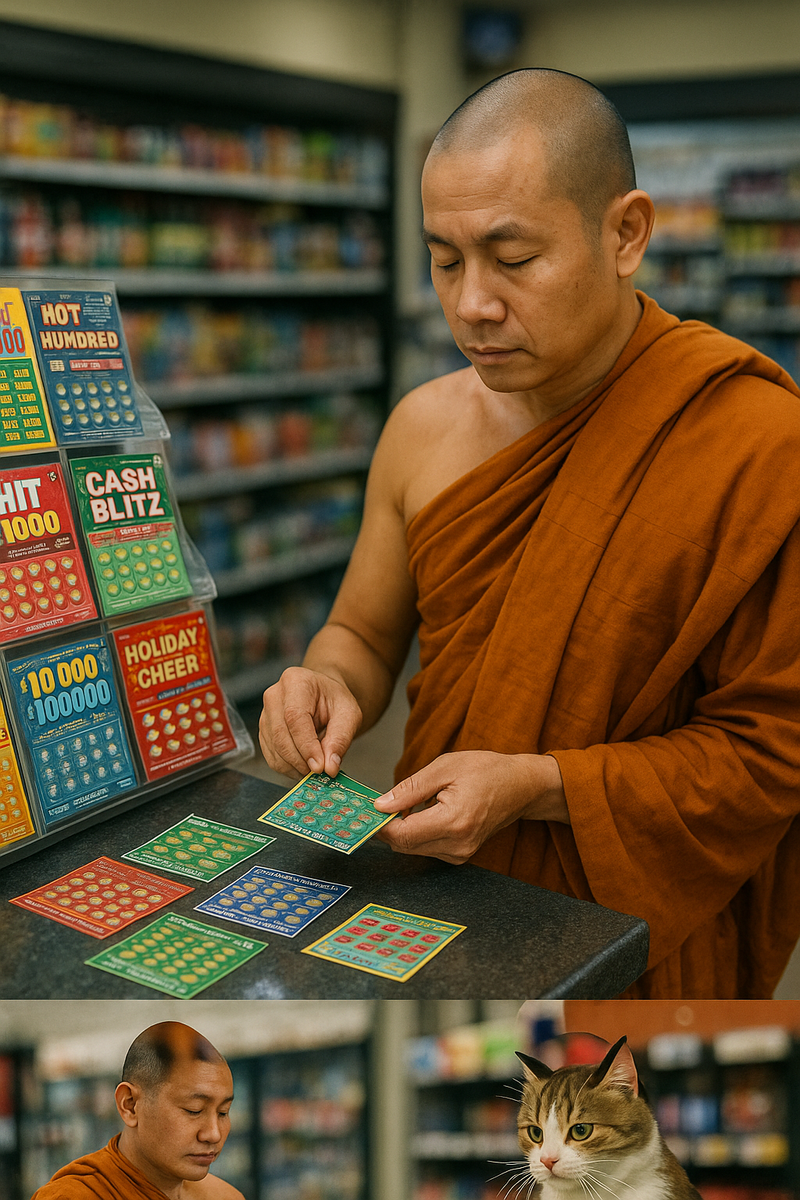
5 Things to not do to get better at the lottery.
7/29/2025
5 Things to not do to get better at the lottery.
1. Don't Chase Flashy New Games Just Because They're New
Look, we all feel that pull when a shiny new scratch-off hits the shelves. The artwork's fresh, the prizes look massive, and there's buzz around the gas station counter about the latest drop.
But here's what most people don't realize: new tickets almost never give you better value than older ones — they just feel more exciting.
When a game launches, you're essentially flying blind. Everyone and their brother is buying these tickets, but nobody knows what the real landscape looks like yet. Meanwhile, there might be an older game sitting right next to it with way better odds because most tickets have sold but the big prizes are still out there waiting.
That's the difference between playing with your gut and playing smart.
2. Don't Trust Those Printed Odds — They Change Constantly
See those odds printed on the back? "1 in 3.44 wins a prize"? Here's the thing — those numbers were true on day one, but they become less meaningful every single day.
What really matters are the current jackpot odds, not the overall game odds. The overall odds (like 1 in 3.44) stay roughly the same throughout the game's life. But your chances of hitting that $50,000 top prize? Those odds shift dramatically as tickets sell and prizes get claimed.
You need to know:
- How many top prizes are still out there
- How many tickets are left in circulation
- Whether you even have a shot at the big money anymore
The printed odds can't tell you any of that. Only real-time data can.
3. Don't Buy Without Checking What's Actually Left to Win
This one's painful to watch. You see people dropping $20 on a game where every single top prize got claimed weeks ago. It's like buying a lottery ticket after the drawing already happened.
But it happens constantly because most players have no idea how to check what's still available. They just grab whatever looks good or play their "lucky" numbers.
Smart players know better. They check which games still have their big prizes intact before spending a dime. Why gamble when you can know for sure?
4. Don't Ignore Your Own Track Record
Quick question: How much did you spend on scratchers last month? Which games treated you best? Did you keep buying from a game that had already paid out all its good prizes?
If you're drawing blanks, you're probably making the same mistakes over and over without realizing it.
Even something as simple as keeping track of what you buy and what you win can help you spot patterns. Maybe Tuesday afternoons are lucky for you. Maybe that $5 crossword game consistently treats you better than the $10 bingo one.
You can't improve what you don't measure.
5. Don't Try to Do All This Detective Work Yourself
Let's be honest — keeping tabs on dozens of games, tracking prize payouts, and calculating shifting odds is exhausting. And frankly, most of us have better things to do.
That's why smart players are using apps like Savvy Scratch to do the heavy lifting. These tools automatically:
- Show you which games have the best remaining value
- Alert you when a game goes cold (all good prizes claimed)
- Spot hidden gems where the odds have actually improved over time
- Keep track of your spending and results without you having to think about it
If you're still picking tickets based on pretty colors or gut feelings, you're bringing a knife to a gunfight.
The Bottom Line: Small Changes, Better Results
You don't need to become a statistics professor to play smarter. Just stop making these common mistakes:
- Chasing the newest, shiniest games
- Trusting outdated information
- Buying blind without checking what's left
- Ignoring your own results
- Doing everything manually when better tools exist
Make these adjustments, and you'll instantly separate yourself from the crowd of players who are just hoping for luck. And in a game where information is everything, that edge can make all the difference.